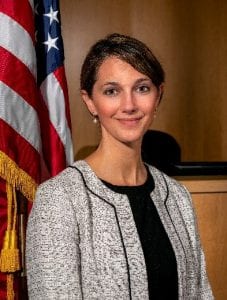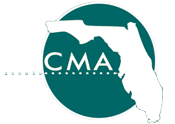 By Casey Lucius, Ph.D., Assistant to the City Manager, City of Marco Island
By Casey Lucius, Ph.D., Assistant to the City Manager, City of Marco Island
Like many cities in the State of Florida, COVID-19 brought numerous unprecedented challenges for the City of Marco Island. One challenge that we were not expecting was the swarm of visitors utilizing vacation rental properties and creating a nuisance for many of our full-time residents. It was clear this was happening in cities throughout the state when Governor DeSantis suspended vacation rental operations in late April 2020. One month later however, the Florida Department of Business and Professional Regulation (DBPR) allowed counties to develop a “COVID safety plan” for vacation rentals and by the end of May, vacation rental owners were back in business.
During the summer of 2020, our City Council members and the City Manager’s office received hundreds of emails from residents complaining of noisy parties, excessive trash on the beach, loud music, over occupancy in single family homes, and consistent parking problems in residential neighborhoods, all of which they attributed to vacation rentals. Given that state law restricts municipalities from prohibiting vacation rentals or regulating the duration or frequency of rentals (Statute 509.032(a) passed in 2011), there was little the city could do to shut down these problematic properties. Some cities had regulations restricting vacation rentals in place prior to 2011, but for those cities that were not grandfathered, their actions (or reactions) are limited by state law.
In the City of Marco Island, we found ourselves limited by the state on the one hand, and on the other hand, we had hundreds or thousands of residents expecting us to take action to protect their neighborhoods. This led the city manager to create a team of employees to research and develop potential strategies to address problematic vacation rentals. Over the next several months we took a variety of steps that have made a positive impact for our residents. We are sharing these steps in the hopes that other cities may be able to apply similar measures to deal with vacation rentals while still minimizing government interference in private property rights. As a side note, our Planning Board and City Council had already taken a stab at developing a registration ordinance in 2007, 2009, 2014 and 2015. Given the pitfalls associated with such an ordinance, we realized we needed to be creative in developing a different course of action.
Our proposed course of action was a two-pronged approach: 1) communicate with and educate vacation rental property owners, and 2) for those owners not complying with licensing requirements or with local codes, they would be reported to DBPR and cited under local codes. Below are some of the steps we took to implement this strategy.
- In September 2020, we established a special email for residents to provide complaints, stories, solutions, or just vent about vacation rentals. This email address [email protected] got over 400 emails the first month.
- Also, in September 2020 we led a Zoom Town Hall to provide the public with a legal overview of vacation rentals explaining what the city can and cannot do to address their concerns. There were 430 residents and vacation rental property owners on the Zoom meeting and we took public comment from 67 callers.
- We ramped up code enforcement efforts of our parking and solid waste ordinances.
- We presented a new and improved noise ordinance to the City Council, which they approved. The new noise ordinance relies on decibel readers to take the subjectivity out of the situation and it increased fines up to $5,000 for repeat noise violations.
- We created a summary of the new noise ordinance and mailed it to property management companies and any owner who had received a Notice of Violation.
- We created a Vacation Rental webpage on the city’s website with helpful links and information for vacation rental owners and neighbors. In the first two months, the site received over 4,000 page views.
- Our finance department improved their online payment system and created a system to accept payment of fines directly at the magistrate hearing.
- Our community service officers and police officers were trained on how to improve their communication about the rules and how they are enforced.
- Our staff coordinated with DBPR to receive a list of vacation rental properties that are licensed to operate in the city, providing a list of emails which allowed us to better communicate and educate the property owners.
- We developed a plan to conduct extra police patrols in the areas where there were multiple noise complaints, and for properties that have had multiple verified code violations, we report them to DBPR. DBPR can either revoke the vacation rental license or levy administrative fines.
The big question is whether any of these steps have made a difference. If emails are any indicator, then the answer is “Yes”. In September we received over 400 emails about problematic vacation rentals. Between October – December 2020, we received 62 emails. Sixty-two emails suggests that we still have a vacation rental problem, but we have certainly had a decline in the number of complaints from our residents. Another signal of success is the cooperation by property managers and with DBPR. We now have an open line of communication with these important stakeholders. While it is too soon to declare victory, the internal improvements were necessary and will serve as an important foundation for any future policy decisions by the City Council.
Contact Casey at 50 Bald Eagle Drive, Marco Island, FL 34145, [email protected].






